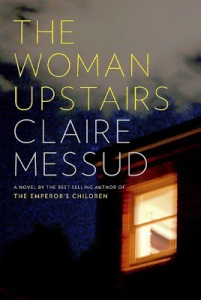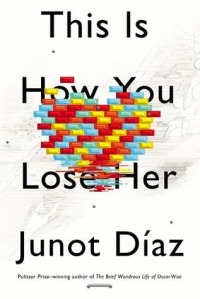**Disclaimer: There are some minor spoilers**
The Issue of the Narrator
This book club, we Illianans (Illi-Hoosiers??) discussed at length the voice of The Round House. At face value, the book is told from the point of view of a 13 year old Native American boy. We felt at points it was hard to disassociate the fact that a woman, who never had the (I’m sure stellar) opportunity to be a 13 year old pubescent boy, wrote the book. We were worried that the voice would not ring true, and the friendships and family relationships would not seem genuine. However, Erdrich uses a writing technique that saves the narration and makes 13 year old Joe’s voice believable: she tells the story as a retrospective. We learned early on in the book that Joe is recounting his teenage life from quite a number of years down the road, when he is established as a husband and successful lawyer. The narrative flows smoothly so at times we were completely involved in Joe’s life as a teenager just coming into his own, and then able to smoothly transition when the adult Joe adds an observation. We felt that the retrospective was really the only way this narrative could succeed, since Joe as an adult can offer insight on why he behaved the way he did as a kid. We came to trust Erdrich and her capable handling of a rather complicated narrative voice.
We also discussed the reliability of Joe as the narrator. Since the story is a retrospective, we wondered if perhaps there were some events that he does not remember well or has embellished over the years. One indication of unreliability is the fact that the book lacks quotation marks when the characters speak. The lack of quotes could signify Joe’s inability to understand certain things as they really happened, such as his mother’s reaction to her traumatic experience. Perhaps this hint of unreliability makes the narrative even more believable, because Joe is afterall very young to have to deal with such issues as the law, rape, and murder.
This Week’s Theme: The Commodification of Women

Both This Is How You Lose Her and The Round House deal with issues of the commodification, objectification, and dehumanization of women. The brutal rape and near-conflagration of Joe’s mother is done by a man intent on using her to get revenge on someone else. Commodification of women is also apparent in the dichotomy between Joe’s mother and his Aunt Sonja. Sonja, a former stripper, is certainly used to being objectified, but she still has faith in the beginning of the book that not all men see her as an object. Namely, she believes Joe can look to her as a maternal figure, just as she comes to see him as a son. However, Joe becomes one more male to disappoint her when he unabashedly insists upon sexualizing her in a very personal way. In the end, Sonja runs off with a small fortune that she and Joe stumbled across– and we really couldn’t blame her for that choice, as it demonstrated that she was finally taking control of her life.
The afterword had some staggering statistics on sexual assault, particularly on reservations. These statistics led to discussion on whether the commodification of women that was so prevalent in this book was a reflection on gender relations in the Native American community or representative of the hypersexualization and objectification of women as a whole. While we weren’t able to reach a definitive conclusion on this, it did connect very well to This Is How You Lose Her.






